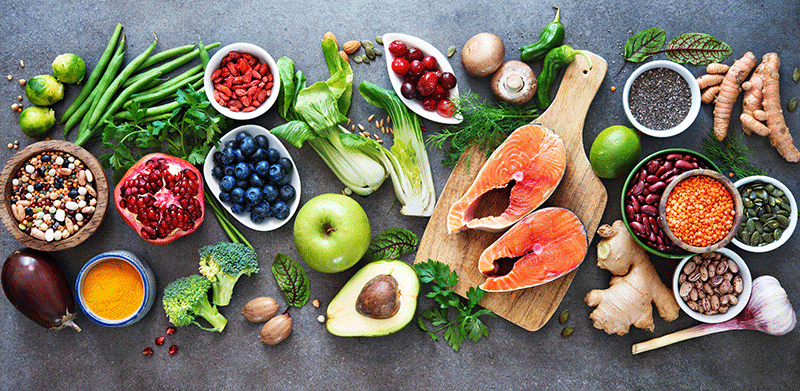The Importance of Nutrient-Rich Foods
Eating a balanced diet is essential for maintaining good health. Nutrient-rich foods play a crucial role in providing our bodies with essential vitamins, minerals, and other nutrients that are necessary for optimal functioning. These foods not only provide energy but also support our immune system, promote healthy growth and development, and reduce the risk of chronic diseases.
What are Nutrient-Rich Foods?
Nutrient-rich foods are those that are packed with essential nutrients while being relatively low in calories. These foods are typically unprocessed or minimally processed, which means they retain their natural nutritional value. Examples of nutrient-rich foods include fruits, vegetables, whole grains, lean proteins, nuts, seeds, and legumes.
The Benefits of Nutrient-Rich Foods
1. Improved Overall Health: Nutrient-rich foods provide a wide range of vitamins, minerals, and antioxidants that support various bodily functions. They help boost the immune system, promote healthy digestion, and reduce inflammation.
2. Weight Management: Nutrient-rich foods are typically low in calories but high in fiber, which helps promote feelings of fullness and prevents overeating. Including these foods in your diet can aid in weight management and prevent obesity.
3. Reduced Risk of Chronic Diseases: Consuming nutrient-rich foods has been linked to a lower risk of chronic diseases such as heart disease, diabetes, and certain types of cancer. These foods provide essential nutrients that support healthy cells and reduce the risk of oxidative stress.
Incorporating Nutrient-Rich Foods into Your Diet
1. Include a Variety of Fruits and Vegetables: Aim to have a colorful plate that includes a variety of fruits and vegetables. These foods are rich in vitamins, minerals, and fiber.
2. Choose Whole Grains: Opt for whole grains such as brown rice, quinoa, and whole wheat bread instead of refined grains. Whole grains provide more nutrients and fiber.
3. Prioritize Lean Proteins: Choose lean sources of protein such as skinless poultry, fish, beans, and tofu. These foods are rich in protein without the added saturated fat.
4. Incorporate Healthy Fats: Include foods rich in healthy fats such as avocados, nuts, and seeds. These fats help with nutrient absorption and support brain health.
5. Limit Processed Foods: Processed foods are often high in added sugars, unhealthy fats, and sodium. Limiting their consumption can help promote a healthier diet.
Conclusion
Nutrient-rich foods are the foundation of a healthy diet. By incorporating a variety of fruits, vegetables, whole grains, lean proteins, and healthy fats into our meals, we can ensure that our bodies receive the essential nutrients they need for optimal health and well-being. Remember to make mindful choices and prioritize nutrient-rich foods to maintain a balanced and nutritious diet.
